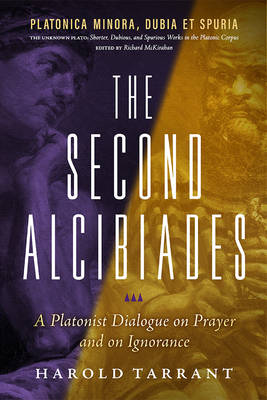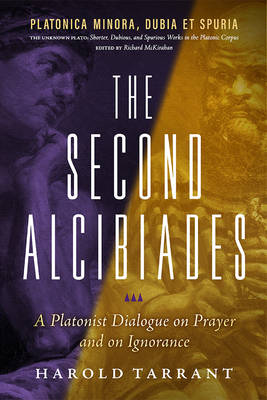
- Afhalen na 1 uur in een winkel met voorraad
- Gratis thuislevering in België vanaf € 30
- Ruim aanbod met 7 miljoen producten
- Afhalen na 1 uur in een winkel met voorraad
- Gratis thuislevering in België vanaf € 30
- Ruim aanbod met 7 miljoen producten
Zoeken
The Second Alcibiades: A Platonist Dialogue on Prayer and on Ignorance
A Platonist Dialogue on Prayer and on Ignorance
Harold Tarrant
€ 51,45
+ 102 punten
Omschrijving
Providing a challenging new interpretation of the Second Alcibiades from the Platonic corpus, this treatment sees the dialogue not only as a work of philosophic ethics, but also as one steeped in ancient literature, particularly Euripidean tragedy. The dialogue's philosophy is underpinned by an epistemology paying special attention to one's personal viewpoint, as its language shows. Dramatically, it presents a Socrates who falls into a similar trap from the one he steers Alcibiades away from, facing the dangers of a tragic character thanks to their mutual attraction. Understood in this way the dialogue, here retranslated to bring out such features, is revealed as the work of an author with linguistic and literary gifts who is deeply conscious of the human condition. While reminiscent of the Academic Skeptic picture of Plato, it is the work of somebody still moving cautiously in that direction.
Specificaties
Betrokkenen
- Auteur(s):
- Uitgeverij:
Inhoud
- Aantal bladzijden:
- 259
- Taal:
- Engels
- Reeks:
Eigenschappen
- Productcode (EAN):
- 9781733535786
- Verschijningsdatum:
- 27/04/2023
- Uitvoering:
- Paperback
- Formaat:
- Trade paperback (VS)
- Afmetingen:
- 152 mm x 226 mm
- Gewicht:
- 430 g

Alleen bij Standaard Boekhandel
+ 102 punten op je klantenkaart van Standaard Boekhandel
Beoordelingen
We publiceren alleen reviews die voldoen aan de voorwaarden voor reviews. Bekijk onze voorwaarden voor reviews.











